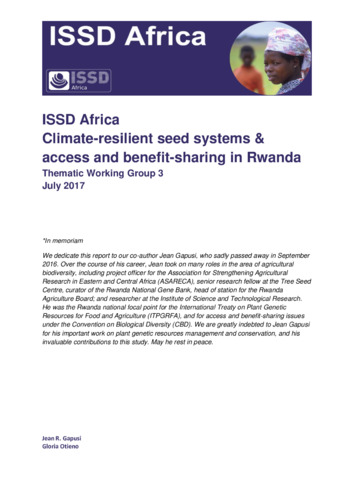Climate-resilient seed systems and access and benefit-sharing in Rwanda
This study is part of the Integrated Seed Sector Development (ISSD) programme’s action learning theme on matching global commitments with national realities. The theme used case studies to reflect upon climate resilience and access and benefit-sharing (ABS) mechanisms, specifically with respect to the national policy and legal environment for ABS, and the practical issues involved in the access to and exchange of plant genetic resources for food and agriculture (PGRFA) through the International Treaty on Plant Genetic Resources for Food and Agriculture (ITPGRFA) or the Nagoya Protocol on Access to Genetic Resources and the Fair and Equitable Sharing of Benefits Arising from the Utilization of Genetic Resources of the Convention on Biological Diversity (Nagoya Protocol/CBD). The objective of the study was to analyse how climate change has affected agricultural productivity in Rwanda, and the strategies that have been put in place to facilitate access to PGRFA required for climate change adaptation. PGRFA exchanges between different stakeholders in and out of the country were studied using secondary data from various institutions, such as the Rwanda National Genebank (RNGB), CGIAR centres, ITPGRFA Secretariat, breeding programmes, regional research projects, breeders’ networks and farming communities. A key informant survey, consisting of 52 respondents from various research and breeding programmes, was also used to augment the data obtained from secondary sources. In addition, climate and crop suitability modelling was used to identify collections of PGRFA that could potentially be suitable for climate challenges at present and in the future.

